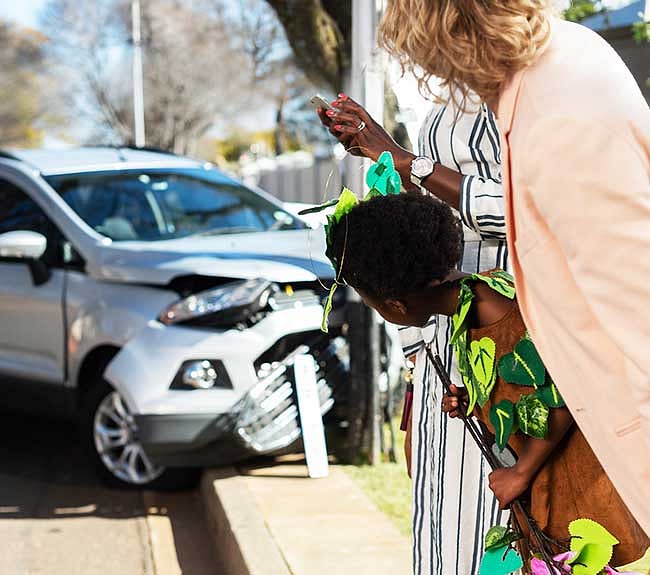
For as long as cars have existed, jokes have been made about women drivers. But like many maxims, they’re not backed up by facts. In fact, the research shows something vastly different; over and over, women outperform men in many areas of driving.
Insurance
October 9, 2020By First For Women
For as long as cars have existed, jokes have been made about women drivers. But like many maxims, they’re not backed up by facts. In fact, the research shows something vastly different; over and over, women outperform men in many areas of driving. That’s one of the reasons why at First for Women, we offer car insurance plans that are designed exclusively for women. This means women generally do pay lower premiums than men do. Find out why this is happening
Why do women pay less for car insurance premiums?
In order to answer this burning question, let’s take a look at this issue in more detail - because who doesn’t love facts and research to back up something we already know.
2 Reason that allows women to pay less for car insurance
There are two important reasons why women can enjoy a lower premium on their car insurance plans.
1. Women are better drivers than men
It’s not just South African women who pay lower car insurance premiums. Research from all over the world backs up the notion that statistically, women drive better than men. It shows us it’s about more than technical skills. It’s also about the behavioural and neurological reasons behind the discrepancies in women’s and men’s driving styles that matters when it comes to assessing insurance risk.
2. Women are safer drivers than men
Studies have shown that men drive more aggressively and recklessly than women, which makes them a greater insurance risk. They are more likely to get behind the wheel after having a few drinks and they tend to drive more, which automatically makes them riskier to insure. Women, in contrast, tend to be more cautious on the road and are better at obeying traffic laws. They speed less and don’t skip stop signs as often. A report published by the Social Issue Research Centre (SIRC) showed that the most aggressive drivers are men between the ages of 17 and 35 years old. They are three times quicker to hoot if the driver in front of them is slow to move at a green robot, and they are more likely to have an accident because of reckless driving. Compare this to women, who are more likely to have an accident because of a lapse in concentration, and so are less likely to file a car insurance claim.
How does gender affect insurance rates, and is this fair?
You might be wondering if, despite all this evidence that women are safer drivers, it’s fair to base insurance premiums on a person’s gender. This depends on who you ask. It is seen as discriminatory by some. Indeed, in the European Union, the practice of basing insurance rates on gender was outlawed in 2012.
The reality though, is that it can be argued that many factors used to determine a person’s insurance premium would be ‘unfair’. In addition to your gender, insurance companies also look at your age, where you live, where you work, whether you’re married, and even your credit history. Perhaps some of these factors are unfair, but no more so than a person’s gender.
There is also the infamous pink tax that women have to face every day. We’re not saying two wrongs make a right, but if you want to argue that gender-based insurance premiums aren’t fair, then we should look at all the items where women’s products are priced higher than men’s, usually for much more arbitrary reasons. Home, beauty, kids and adults clothing, and children’s toys are just some of the products women are frequently charged more for with no or little apparent difference between the men’s and women’s products.
What do insurers look at when quoting for car insurance?
It isn’t just about your gender. There are a number of other factors that your insurer will consider when providing a quote on car insurance. Here are some of the other factors that will be taken into consideration:
1. Your demographics:
- Age. Drivers under 25 years old are considered a higher risk for some of the same reasons men are - younger people are more likely to engage in risk-taking behaviour.
- Home address. If you stay in a high-crime rate area, your car is more likely to be stolen or damaged. If your area is relatively crime-free, on the other hand, your insurance premium is likely to be lower.
- Work address. If you spend most of your waking life at your job so does your car. It makes sense that we’d need to know where your place of work is located.
- Where you park. Whether at home or the office, where you park your car makes a difference. Leaving your car on the street overnight puts it at a higher risk for theft and damage than in an access-controlled, underground garage.
2. The type of car you drive
The type of vehicle you drive has a major effect on your premiums. While we know you’re less likely to get into an accident than your male counterparts, we understand that mishaps do happen. That’s why we look at how much it might cost, on average, to repair your car if it’s damaged. We also take its safety features into account and any after-factory add-ons you might have included, like a sound system.
3. What your job involves
It’s not just where you park your car that matters, it’s what you with your car. Your occupation matters to insurers. Estate agents, sales reps, and tradesmen who are often on the road and who visit office blocks or private homes could pay more for cover. These might seem like a strange mix of professionals, but some jobs require that you be on the road. This makes it a higher risk to insure.
4. Your driving history
We know that most women are responsible drivers. Unfortunately, accidents do happen. When they do, it can affect your premiums for a while afterwards. So, your insurer will need to know what accidents you’ve had in recent years so we can assess how likely you are to have another one.
The reason why First for Women only insures female drivers
First for Women has provided women with top-quality car insurance in South Africa for over 15 years. We wanted to provide insurance that was designed specifically for women. Even now, with other insurance products for women available, we feel it’s still important for us to create cover exclusively for women. We’re committed to meeting the unique insurance needs of South African women, in whatever way we can. It’s also the reason why a portion of all our customers’ premiums goes towards the First for Women Foundation, for the fight against women abuse.
Get a car insurance quote from First for Women
You won’t be disappointed. Our car insurance policies all come standard with a range of benefits. This includes our Guardian Angels Lifestyle Assistance, which is there for you at home, on the road, when you have a medical emergency, on hand to offer advice about tax, legal and financial matters, and will even provide your very own virtual personal concierge service. A comprehensive car insurance policies also come with Guardian Angel on Call 24/7 Accident Roadside, and Panic Button Assistance, available through the First for Women App.
To benefit from insurance specifically designed for women, give us a call on 0861 11 16 67 for a car insurance quote. If you’re too busy for a phone call (because we know you have a lot going on), you can get a quote online in minutes.
Sources:
W24; Psych Central; SIRC, WHO; Mail & Guardian, New York Times
Price quotes are correct at the time of publishing this article. The information in this article is provided for informational purposes only and should not be construed as financial, legal or medical advice.













